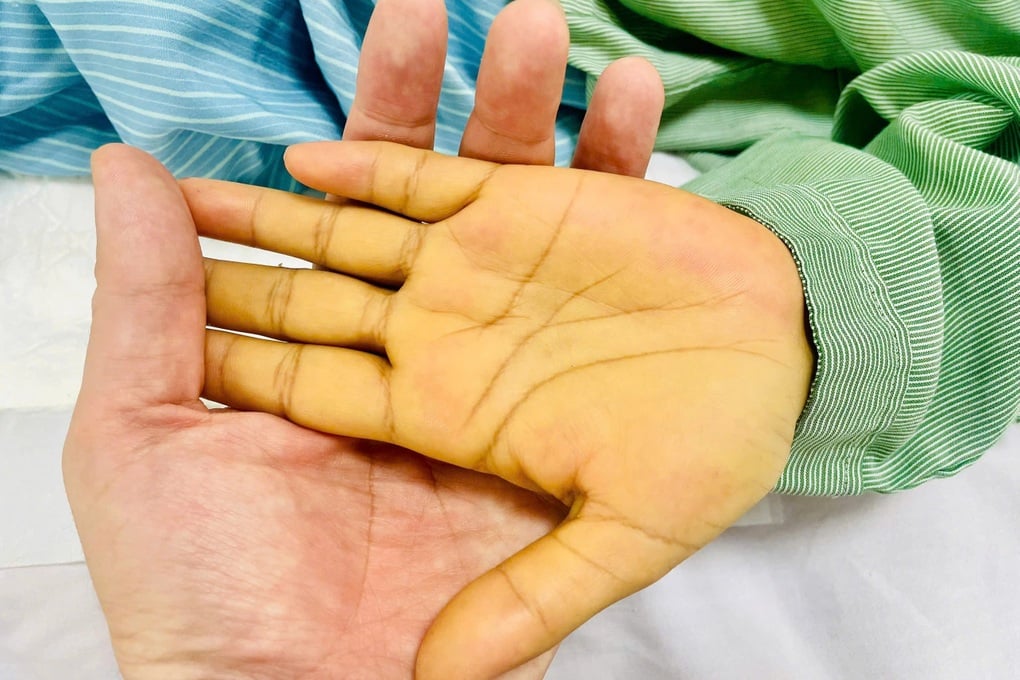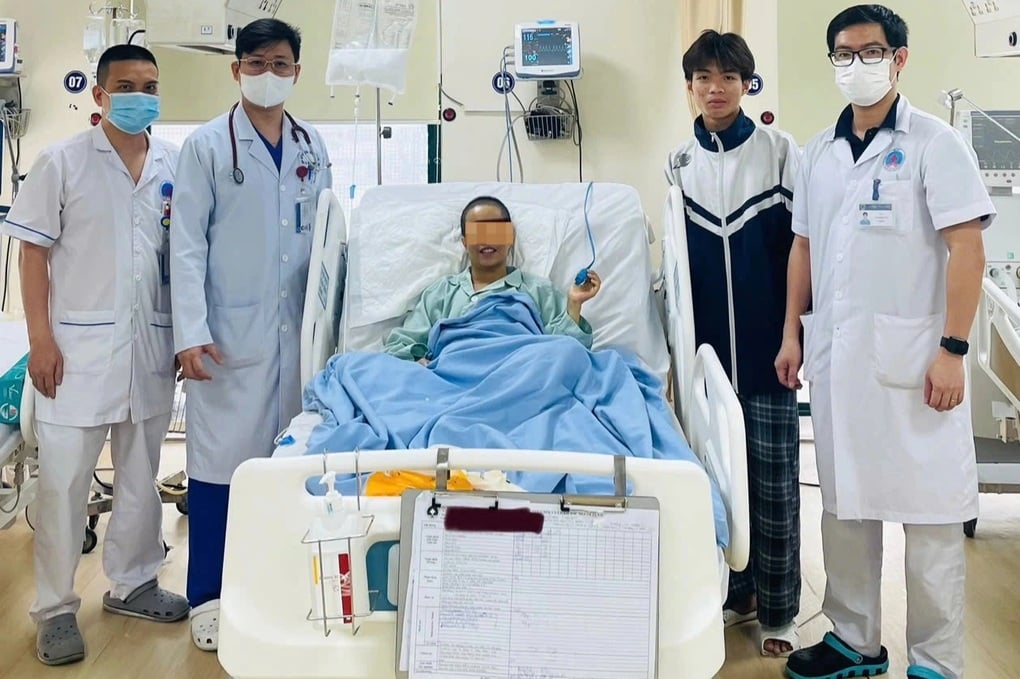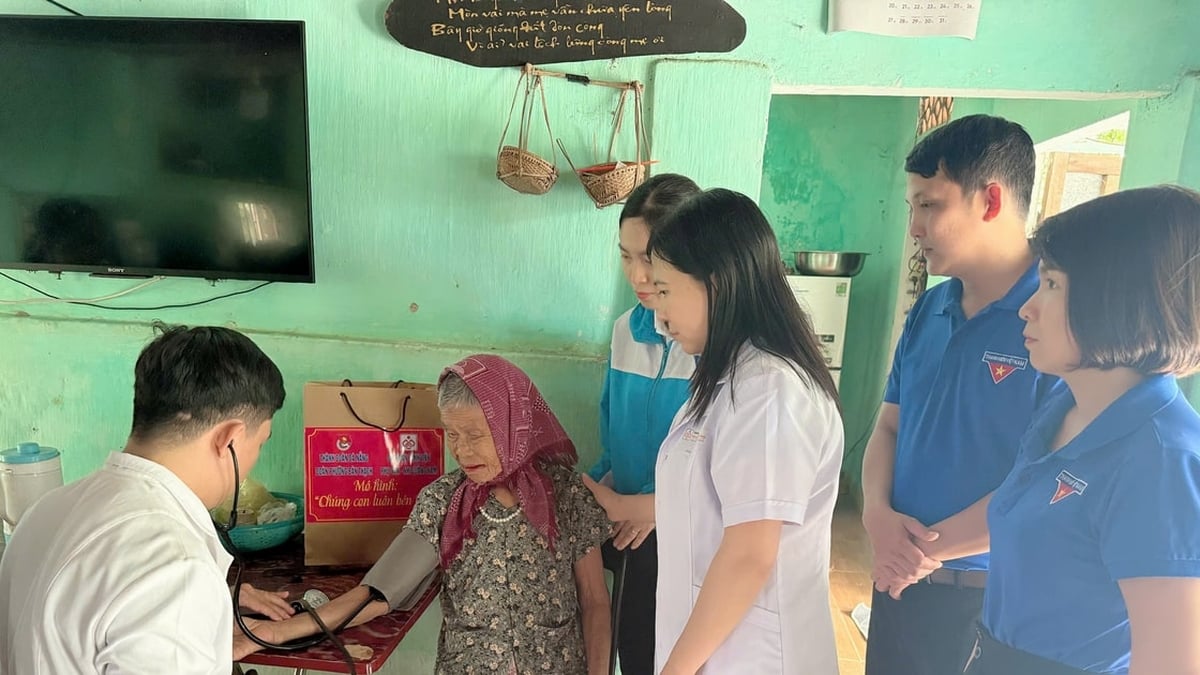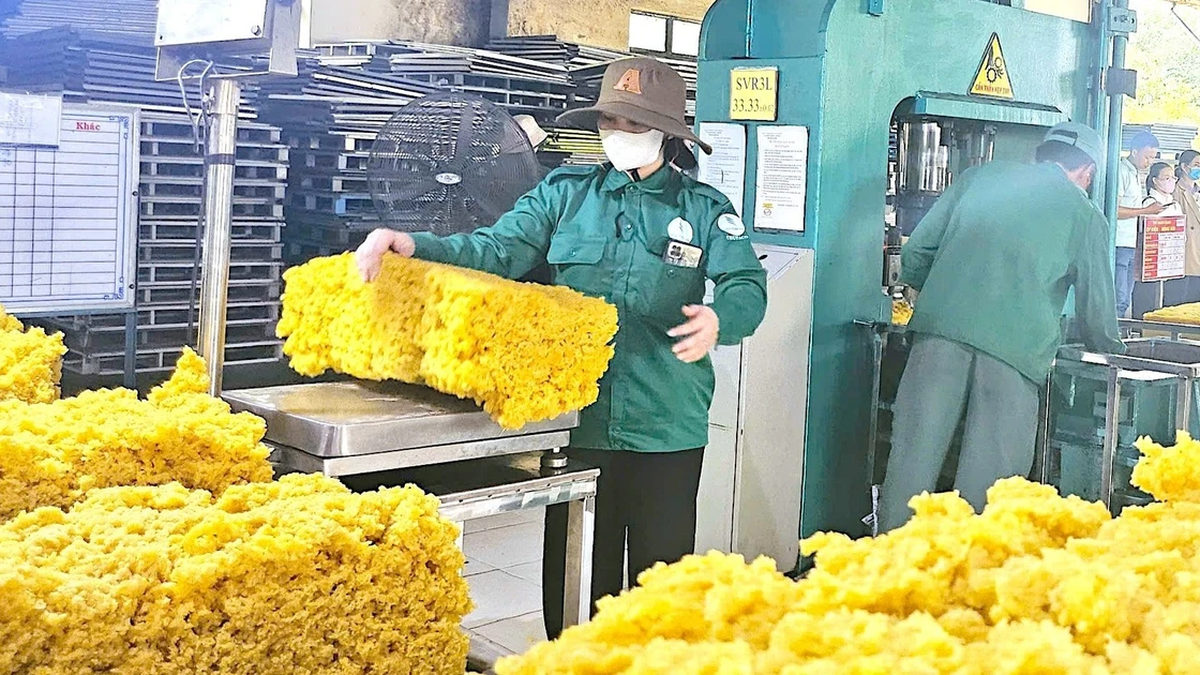Dr. To Hoang Duong, Deputy Head of the Department of Intensive Care and Anti-Poison (Friendship Hospital) said: "The department has just successfully treated a female patient who was in a coma due to complications of acute liver failure caused by hepatitis B virus."
Patient D.TTH (female, 43 years old, address Hung Yen ) has a history of breast cancer, admitted to the hospital at the On-Demand Treatment department due to fatigue, loss of appetite, and fever.
The patient was examined and diagnosed with: Hepatitis B virus, high viral load measurement. Therefore, the patient was treated with antiviral drugs, liver function support. However, the patient's condition improved little, liver enzymes increased, accompanied by rapidly progressing jaundice, blood clotting disorders, and impaired consciousness.
Image of patient's dark yellow skin before treatment (Photo: Provided by the hospital).
The patient was intensively resuscitated. Examination determined that the patient had entered a hepatic coma.
Tests showed that the patient had a very high hepatitis B viral load, up to billions of copies of the virus in his blood.
Liver enzymes and Bilirubin (a substance that causes jaundice) increased dozens of times higher than normal, causing the patient to fall into a coma. At the same time, the patient had a severe blood clotting disorder, with a very high risk of cerebral hemorrhage and gastrointestinal bleeding.
Acute liver failure is a fairly common complication when patients have acute hepatitis B. Acute liver failure can lead to blood clotting disorders causing bleeding in the skin, mucous membranes, and gastrointestinal bleeding; especially cerebral hemorrhage.
On the other hand, hyperbilirubinemia in acute liver failure can cause coma and the patient may die.
The Intensive Care Unit performed plasma exchange 4 times for the patient with a total of 12 liters of plasma used.
After each dialysis session, the patient gradually improved in consciousness, became more alert and less tired. Jaundice, increased liver enzymes and blood clotting disorders improved well.
Currently, the patient is awake, eating by mouth and moving in bed. After that, the patient will be transferred to the On-Demand Treatment Department for continued monitoring of liver function and maintenance antiviral treatment.
The patient recovered after dialysis and plasma exchange (Photo: Provided by the hospital).
Plasma exchange is a blood purification method in which plasma containing pathogens or toxic substances in the patient's blood is filtered out, and then replaced with healthy plasma from a blood donor to help remove disease-causing factors, support liver function during the weakened stage, and create conditions for the patient's liver to recover.
"This modern method has helped treat and save the lives of many patients with acute liver failure due to viral hepatitis or poisoning at Friendship Hospital in recent times," Dr. Duong shared.
Source: https://dantri.com.vn/suc-khoe/nguoi-phu-nu-da-vang-nhu-nghe-suyt-chet-vi-can-benh-thuong-gap-20250513155326041.htm






























![[Photo] Signing of cooperation between ministries, branches and localities of Vietnam and Senegal](https://vphoto.vietnam.vn/thumb/1200x675/vietnam/resource/IMAGE/2025/7/24/6147c654b0ae4f2793188e982e272651)







































































Comment (0)